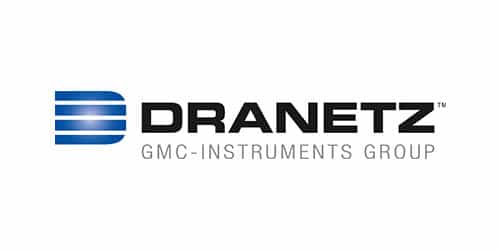This issue covers:
- Visit Seaward at Elex Harrogate
- A letter from America...
- 'Potentially lethal' hot water bottles seized by Trading Standards officers
- New electrical safety measures for Scottish landlords
- Electric shocks put cinema operator in court
Visit Seaward at Elex Harrogate
Seaward will be exhibiting at the Elex Show on the 6-7th March at the Yorkshire Event Centre, Harrogate.
Visit the company on stand R28 and get hands-on with the Seaward PAT range including the state-of-the-art Apollo 600 PAT tester with built in camera, the Apollo 500 ‘plug and play’ tester and the latest addition to the Seaward family, the PrimeTest 250 Plus, a manual tester with memory.
In addition, visitors to the stand can demo the powerful new app, PATMobile, with special features to help convert the best-selling manual PATs, the PrimeTest 50 and the PrimeTest 100, into semi-automatic testers.
More information here
A letter from America...
An article from the USA on how to avoid electrical risks illustrates the global nature of workplace safety challenges.
According to the Electrical Safety Foundation International, more than 300,000 workers have been injured in electrical-related accidents in the workplace over the past decade. Accidents include electrocution, shock, and arch flash and blast.
In response, three key steps to mitigate electrical risks in the workplace are recommended by the US National Fire Protection Agency (NFPA) 70 E Standard for Electrical Safety in the Workplace, which should be of general relevance.
The first step is to build awareness. With electrical safety being something that can easily be overlooked, employers are advised to make an effort to educate all employees about electrical safety dangers and best practices.
The second suggested measure is to conduct hazard assessments. In particular it is advised that employers should conduct assessments to determine if there are gaps and weaknesses in their existing safety programs.
Finally, employers or those responsible for managing safety are recommended to document electrical safety programs to show that an organisation takes electrical safety very seriously.
The advice forms the core of the USA’s Occupational Safety and Health Administration's (OSHA) regulations for electrical safety in the workplace. The full article is here.
'Potentially lethal' hot water bottles seized by Trading Standards officers
More than 1,200 electric hot water bottles seized by Kent County Council Trading Standards officers have been described as potentially lethal.
The bottles – intended for use by children – were recovered from a lorry arriving through the Port of Dover.
Mains electricity is passed through the water in the bottle to heat it up, which is against the relevant safety standard. Any leaking water would be “live” and could lead to electrocution.
An electrical safety expert examined the hot water bottles and found numerous faults. The faults included insufficient insulation to protect the user from electric shock, the cable was inadequate for the load and the construction of the cable was not safe because wrong connecting devices had been used.
Over 1,000 unsafe LED lamps were also found in the consignment, which originated in China. Full story here.
New electrical safety measures for Scottish landlords
New electrical safety requirements facing landlords in Scotland will be highlighted in an awareness campaign from Electrical Safety First (ESF).
ESF is joining with Margaret Burgess MSP, Minister for Housing and Welfare and Bob Doris MSP, to ensure landlords are aware of their new responsibilities and to encourage early compliance.
The recent Scottish Housing Act included a requirement for landlords to ensure five-yearly electrical checks, by a registered electrician, of the wiring and any electrical appliances supplied in privately rented homes.
These requirements will come into force in December of this year and ESF has been funded by the Scottish Government to establish an awareness campaign to publicise it. Special guidance on the regulations has also been published by the Private Rented Housing Panel and is available here.
Margaret Burgess MSP said: “From December this year, the Housing (Scotland) Act 2014 will require private landlords to carry out an electrical safety inspection at least once every five years. This will strengthen housing standards and improve the safety of tenants in the private rented sector.”
Electric shocks put cinema operator in court
A cinema operator has been fined after two employees received electric shocks from a popcorn machine.
Manchester Magistrates Court fined Cineworld Ltd. £9,000, plus costs, after two members of staff at its Didsbury multiplex received electric shocks from a machine that keeps popcorn warm.
After one employee received a shock, management were alerted, but failed to isolate the machine or post warning notices to stop staff using it. Later the same day, a second worker was shocked when he turned the machine off.
An investigation by Manchester City Council found the machine had a faulty switch and a panel missing, meaning a live circuit board was exposed. Neither worker was seriously injured by the shocks, but the court heard that they could have been fatal.
Cineworld Cinemas pleaded guilty to breaching Section 2(1) of the Health and Safety at Work Act.
Do you use Seaward PAT testing equipment? - If you think you may have a story for future e-news bulletins, please let us know by contacting us here.


















Sign up to our Newsletter.
Stay up to date with the latest industry and product news, as well as our free educational content such as webinars and our expert guides.
Close